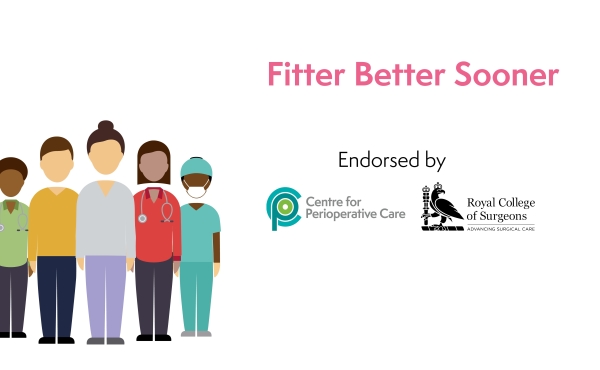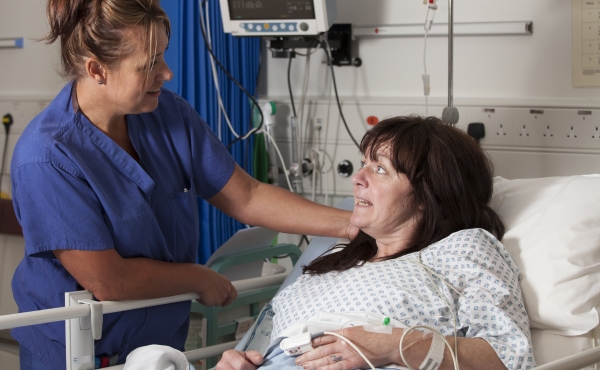Medical experts advise prepare for virus like you would prepare for an operation
In the midst of a global pandemic, a major national medical organisation is calling for the public to prepare themselves for the possibility they will contract COVID-19 virus, in the same way they should prepare for an operation. The Centre for Perioperative Care (CPOC) based at the Royal College of Anaesthetists is encouraging the public to exercise and stop smoking during this time to increase their ability to cope if they contract the virus.
Mrs Scarlett McNally, Deputy Director of CPOC, who is a Consultant Orthopaedic Surgeon, said: ”In these challenging times, people are understandably apprehensive. There has been a lot of very important advice on how the public can reduce the risk of contracting Covid-19, but we have seen little on the importance of preparing in case the virus is contracted. We have good data showing that people who are prepared for an operation have better outcomes. Results are quick. For example, people who stop smoking four weeks before an operation have 19% fewer complications. People who start an exercise programme get through an anaesthetic better because their heart and lungs work better, and their legs are stronger for getting out of hospital sooner.
“A lot of this is immediately applicable to COVID-19 infection. People are more likely to be admitted to Intensive Care or to die if they smoke, have medical conditions or are unfit. In China they found less fit people with medical conditions were five times more likely to have a worse outcome from COVID-19 and smokers three times more likely to have this result. The public, particularly adults in a ‘vulnerable high-risk group’ should be getting some exercise, so that if they catch the virus, they are less likely to need Intensive Care and we hope also less likely to die. 22% of the UK population has a disability and 14% are over 70 so this is about families working together.”
Families need to support each other. People who feel they are doing something also often feel more empowered and in control. People who exercise have better mental health.
The key messages are
- stop smoking: The craving only lasts 3 minutes.
- do exercise unless you are unwell with the virus: Ideally brisk walking, cycling, electric-bike or jogging. Over-70s ARE allowed out – keep 2 metres from others and don’t touch anything. If indoors, try moving in a different way, eg dancing or using a video programme. Every minute is worth it.
- do strengthening exercise and balance: walk up and down the stairs, do squats and practice sit-to-stand.
- nutrition: It takes 20 minutes to register that you are full, so try smaller portion sizes. Sugary snacks and carbohydrates make hunger return quicker, so plan ahead. People with obesity fare worse with lung infection.
- mental health: Sleep well, allow each other space, don’t do or say the first thing that comes into your head. Breathe.
- alcohol: Have alcohol-free days. Alternate alcohol with a soft drink. Try to break the spell.
- Set up good habits. Fix it in a schedule, for example 20 minutes of daily aerobic exercise. There are lots of videos online.
As well as saving serious illness and NHS capacity now, CPOC is asking the public to prevent the ill-health they are building up, in an attempt to guard against more diabetes, hip fractures, mental ill-health and need for social care when the current crisis eventually ends. This includes those patients waiting for their cancelled elective surgeries, who are asked to do something every day to be ready for when the NHS is ready.
The government advice, on gov.uk is arranged by category and exercise once a day counts as an ‘exception’ for people to get out of the home:
- people who have symptoms – stay home, don’t leave for 7 days
- people who are household contacts of someone with symptoms – stay home for 14 days ‘If possible, you should not go out even to buy food or other essentials, other than exercise, and in that case at a safe distance from others.’
- Adults, including over 70s - ‘look for ideas of exercises you can do at home on the NHS website. Try to exercise regularly. You can also go for a walk outdoors if you stay more than 2 metres from others.’
- 1.5 million people have recently been notified that they have a very high risk of severe illness if they contract COVID-19 because of particular conditions (eg bone marrow cancer, cystic fibrosis or undergoing immunosuppression therapy) - they have been advised to stay in their home. They should exercise at home.
The public has been great about hand washing and social distancing. CPOC wants people to realise that for anyone who doesn’t have symptoms, stopping smoking and getting out to exercise 2 metres away from other people is an exception to ‘isolation’. It recommends its resources on ‘FitterBetterSooner’ which are used by patients preparing for an operation, to reduce the severity of COVID-19 for themselves and their families.




